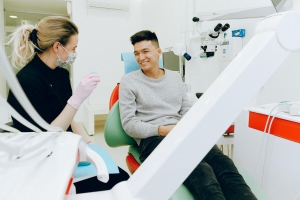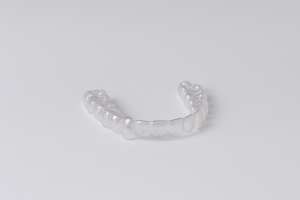Key Takeaways
- Daily dental habits like brushing, flossing, and thoughtful eating are key to lasting oral health and can prevent the most common dental issues.
- Proactive dental care can save significant time, expense, and discomfort associated with complex dental procedures later in life.
- When practiced daily, small behavioral changes build up to substantial dental and general health improvements over time.
Sparkling Beginnings: Why Morning Dental Care Sets the Tone
Starting your day with a thorough dental routine not only freshens your breath but also sets a healthy tone for the rest of your day. Morning dental care stimulates saliva production, which naturally combats bacteria buildup after sleep. Brushing and flossing in the morning removes plaque, protects enamel, and prepares you to face the day with confidence and a cleaner, brighter smile.
Simple routines—like consistent brushing with fluoride toothpaste, gentle flossing, and regular hydration—are powerful habits general dentistry professionals recommend. These daily practices help prevent gum disease and cavities, forming the foundation for a lifetime of oral health. Clinics like Comfort Dental emphasize maintaining these routines and scheduling regular checkups to reinforce healthy habits. When your morning starts with adequate dental care, your smile and overall well-being will benefit.
Flossing Daily Doesn't Have to Be a Drag
Flossing is an essential dental practice that can significantly reduce plaque buildup, particularly between teeth and under the gumline, which is most commonly associated with gum disease and early cavities. The American Dental Association strongly emphasizes the importance of daily flossing, and various flossers are available to suit individual preferences. It's crucial to find a comfortable option and to make flossing a daily habit.
To establish a successful flossing routine, consider linking it to existing habits or keeping your flossers in easily accessible places. Over time, spending just a few minutes each day on flossing can help prevent the need for deep cleanings, reduce bleeding gums, and avoid costly fillings.
Aching Appetite: How Food Choices Shape Oral Health
While brushing and flossing are critical, your food choices are equally important in oral health. Sugary foods and acidic drinks feed bacteria, leading to enamel erosion and cavities. Conversely, crunchy vegetables and fibrous fruits act like natural toothbrushes, physically scrubbing teeth and stimulating protective saliva. Research repeatedly links a balanced, low-sugar diet to fewer dental problems in children and adults. Small changes, such as swapping soda with water or eating cheese after meals, have reduced cavity formation and neutralized acids.
Knowledge truly empowers your choices. For those interested in practical, science-backed recommendations, MouthHealthy compiles nutrition tips that promote strong teeth and healthy gums. Even modest improvements—like reaching for yogurt, cheese, nuts, or apples at snack time—reap big rewards over time. Celebrate these dietary upgrades rather than focus on restriction, and view each healthy snack as an investment in your future smile.
Healthy After-Meal Routines (That Aren't a Chore)
While brushing after every meal is not always practical, quick habits like swishing your mouth with water or chewing sugar-free gum can make a difference. Water flushes away food debris and sugars while chewing gum stimulates saliva—the mouth's best defense against acids. Saliva reduces decay risk and strengthens enamel by returning essential minerals to teeth.
Portable options like travel-sized brushes or dental picks are great for on-the-go. For those with busy schedules, keeping sugar-free mints or a small bottle of mouthwash in a work bag or gym locker can make cleaning teeth more manageable. Even if it only takes a minute, these after-meal habits protect against cavity formation and help maintain fresher breath throughout the day.
Quick Rinses and Their Place in Modern Dental Care
Mouthwash is essential to your dental routine, as it provides cavity protection and helps boost your confidence. Fluoride-based mouthwash can be especially beneficial for individuals at a higher risk of tooth decay, while specialized formulas can target issues such as gingivitis and bad breath. It is advisable to wait 20 to 30 minutes after brushing with fluoride toothpaste before using mouthwash. Additionally, be cautious with mouthwashes that contain alcohol, as they can cause dryness in sensitive mouths. Remember that mouthwash should complement your daily brushing and flossing rather than replace them.






